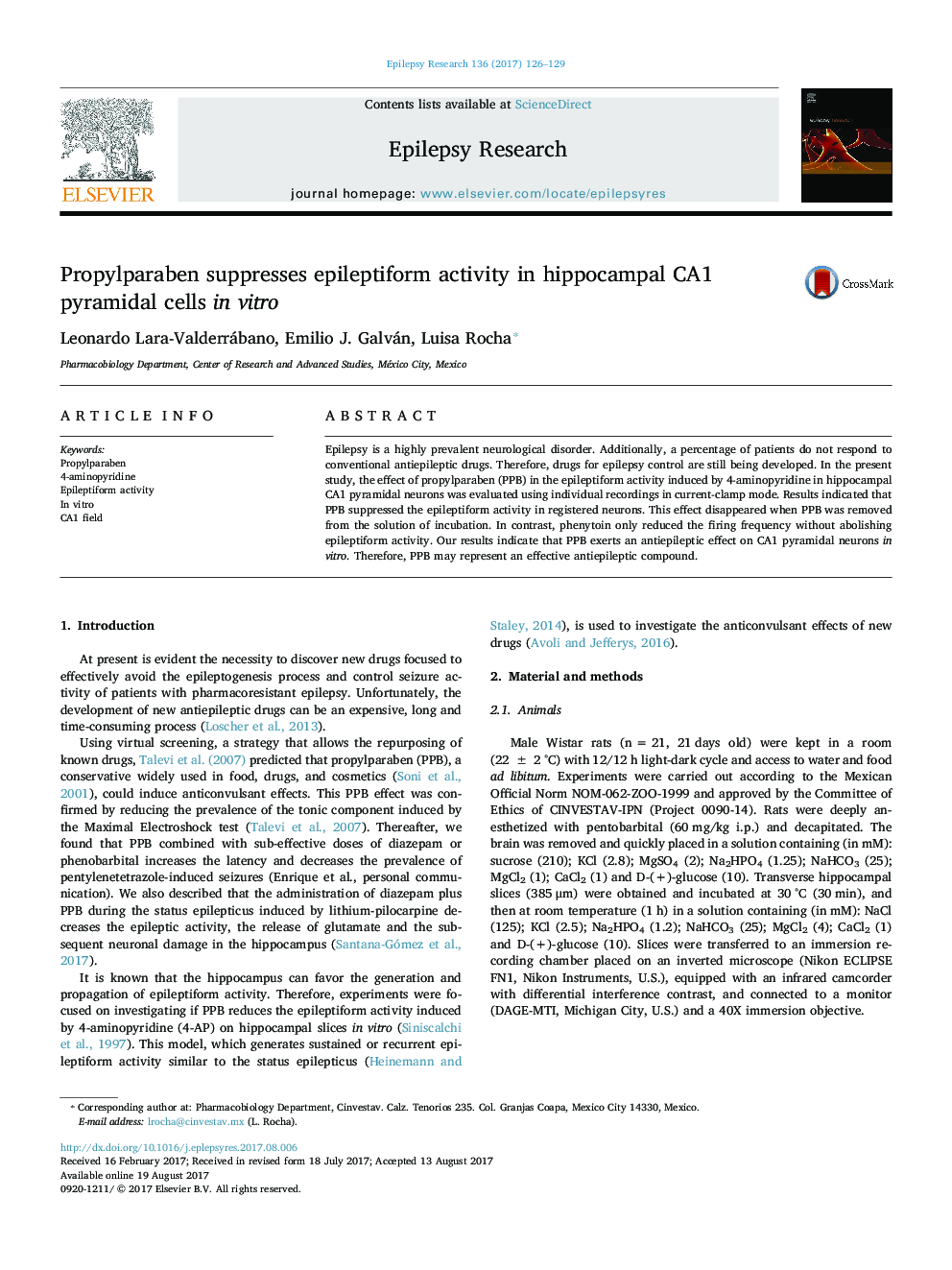| Article ID | Journal | Published Year | Pages | File Type |
|---|---|---|---|---|
| 5628714 | Epilepsy Research | 2017 | 4 Pages |
â¢Propylparaben reduces epileptiform activity induced by 4-aminopyridine.â¢The effect of propylparaben is concentration-dependent.â¢High concentrations of propylparaben does not induce toxic effects.â¢The effect of propylparaben in epileptiform activity is reversible.
Epilepsy is a highly prevalent neurological disorder. Additionally, a percentage of patients do not respond to conventional antiepileptic drugs. Therefore, drugs for epilepsy control are still being developed. In the present study, the effect of propylparaben (PPB) in the epileptiform activity induced by 4-aminopyridine in hippocampal CA1 pyramidal neurons was evaluated using individual recordings in current-clamp mode. Results indicated that PPB suppressed the epileptiform activity in registered neurons. This effect disappeared when PPB was removed from the solution of incubation. In contrast, phenytoin only reduced the firing frequency without abolishing epileptiform activity. Our results indicate that PPB exerts an antiepileptic effect on CA1 pyramidal neurons in vitro. Therefore, PPB may represent an effective antiepileptic compound.
Graphical abstractDownload high-res image (148KB)Download full-size image
